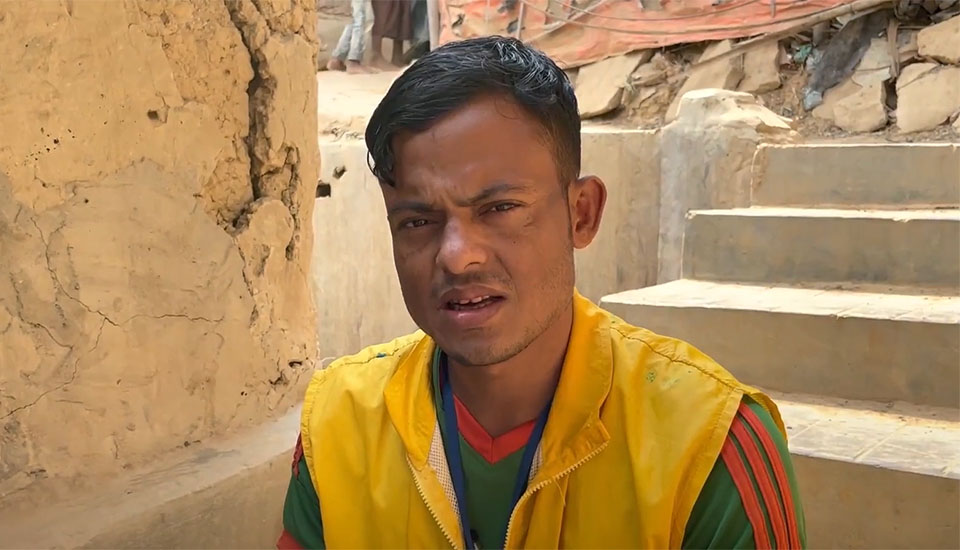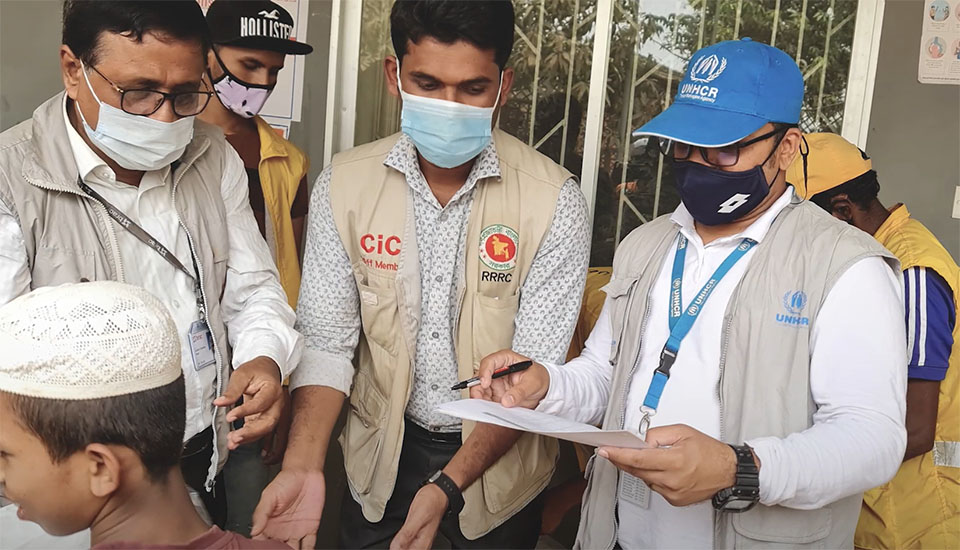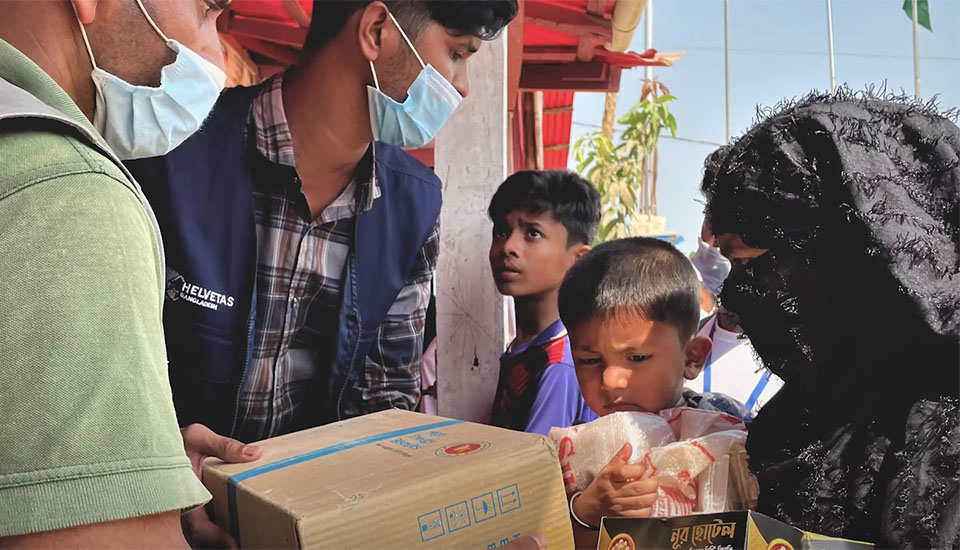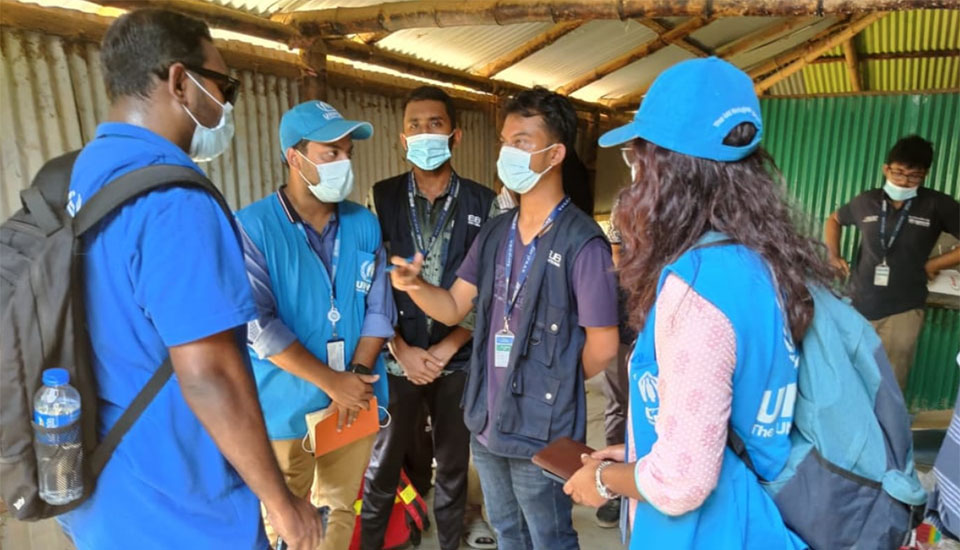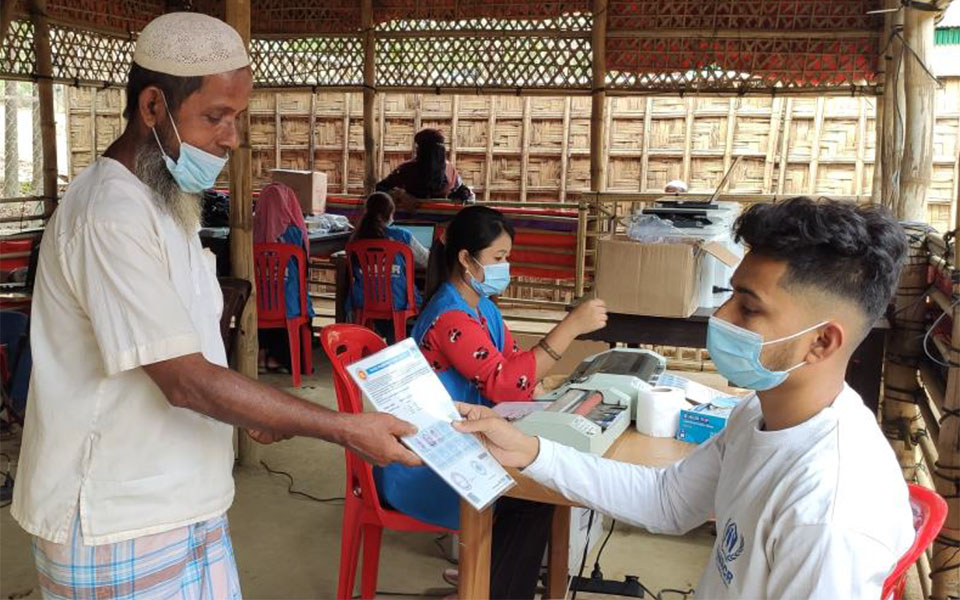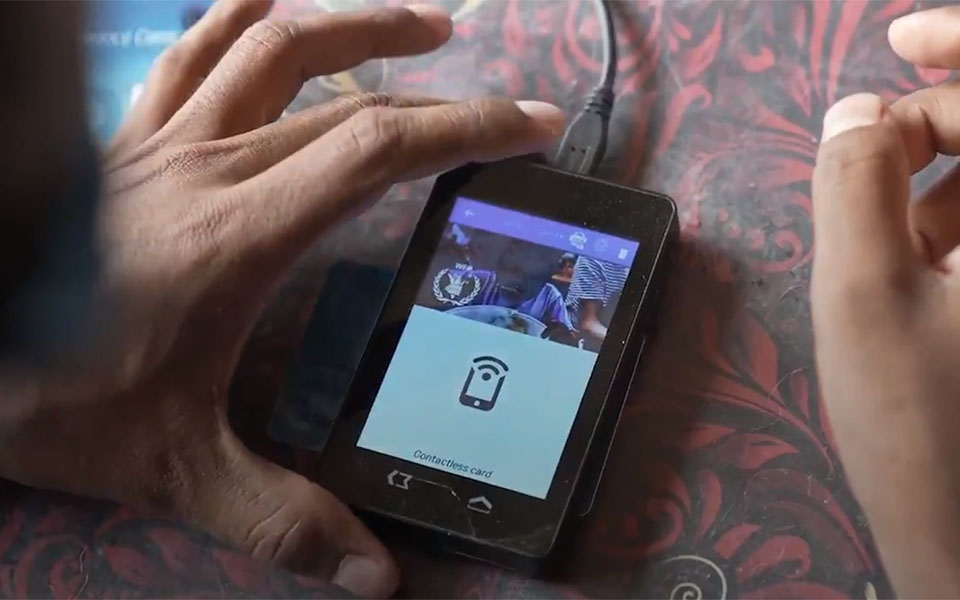The bayanihan spirit remains strong as we extended life-saving aid to refugees in Bangladesh when a devastating fire swept through the Kutupalong Balukhali refugee camps in Cox’s Bazar on 22 March 2021. The fire impacted 92,000 individuals and left 48,000 Rohingya refugees without shelter and displaced once again. The fire has destroyed more than 9,500 shelters and reduced to ashes more than 1,600 vital service facilities including hospitals, learning centers, distribution points and a UNHCR registration center.
Thanks to your timely support, we have raised PHP 196,735 that contributed to the emergency response. We have been engaging the support of Filipino donors like you since 2017 when the Rohingyas fled Myanmar. Having faced one heartbreaking tragedy after another, you have remained steadfast in your compassion and solidarity for the most vulnerable refugees.
Emergency Response
Your committed support inspires many to respond and step up – including Rohingya refugee volunteers. From the onset of the fire, hundreds of volunteers mobilised to extinguish the fire, create fire breaks, take vulnerable individuals to safety, and find separated children. Refugee volunteers remain the backbone of the response.
Mohammed Salam, 30, a refugee who was forced to flee to Bangladesh years ago, was among the first responders. “My work is to serve the people and rescue them from any danger they are facing,” he says.
Every day, Mohammed works with other refugee volunteers to help UNHCR and its partners assist survivors in coping with their loss and begin to recover after this latest tragedy. They have supported the emergency response through the building of temporary shelters, clearing of debris, and identification of special needs required by refugees.
Refugee Protection and Assistance
With your support, UNHCR immediately released emergency relief items including over 3,000 blankets, 20,000 solar lamps, 7,000 kitchen sets, 7,000 mosquito nets, over 3,200 female hygiene kits, 7,000 jerry cans and 500,000 aquatabs. UNHCR has over 12,000 pieces of clothing for affected families ready for distribution.
In addition to emergency assistance, your support enables UNHCR and partners to:
- Help families restore their lost documentation, such as identity cards
- Clear debris and building fire breaks to help prevent future emergencies
- Rebuild shelters, latrines and water points
- Deliver essential basic household items
- Train more community health workers and response volunteers to help survivors
- Provide psychosocial support and care to survivors
UNHCR and partners deployed registration teams to key distribution points in fire-affected camps to assist in the re-issuance of documentation. As of April 6, 500 households have received family attestation documentation, which includes around 3,500 refugees. Two child protection helplines and four re-unification help desks were also established to assist the more than 600 separated children who have been identified. Most have now been reunited with their families, while 27 children remain receiving care.
Refugee volunteers have also become very vital in awareness-building sessions on child protection risks such as child-trafficking and gender-based violence, fire safety, and general assistance, especially in this critical situation.

Seven-year-old Rohingya refugee Noor Hasan, like many children and adults, became separated from his family during the recent blaze at Kutupalong refugee settlements in Cox’s Bazar, Bangladesh. He was missing for three days before his aunt found him and reunited him with his mother, Halima. © UNHCR/Louise Donovan
Public Health
UNHCR also prioritized the availability of immediate medical care services in affected camps through the handing over of three hospital tents to IOM and continuous support on the deployment of mobile medical teams, provision of medicines and supplies to health partners of other agencies.
Psychosocial support has also been reinforced with over 330 mental health and support staff from UNHCR partners actively involved in providing psychosocial first aid to affected families as well as frontline workers. In coordination with IOM and our partners, over 9,700 refugees have received psychosocial support.
Water, Sanitation, and Hygiene
Partnering with OXFAM, NGO Forum and BRAC, UNHCR deployed more than more than 1,200,000L of water, benefiting some 10,000 refugees daily. With the continuous support, 11,000 jerry cans have been distributed to affected families since the outbreak of the fire. Apart from these, UNHCR continues to support the activities of the WASH sector; latrines and tap stands have been constructed in the affected camps to ensure accessibility of emergency sanitation facilities.

Water has been distributed as part of the rapid emergency response for fire-affected refugees and is now accessible in camps where refugees are taking shelter. © UNHCR Bangladesh
Rebuilding camp sites
UNHCR has extended technical site planning and coordination support for the rebuilding of camps, in coordination with IOM. The drafting and development of structural plans include roads, fire brakes, site development priority areas and WASH facilities to ensure higher quality and disaster-ready shelters.
Site management partners and safety unit volunteers have also been on increased alert and actively conducting outreach, ensuring coordination on fire response preparedness and mitigation. This includes drills on collaboration with camp officials and law enforcement and availability of fire prevention items, such as regularly checked and refilled fire extinguishers. So far, over 30,700 refugees were reached with key awareness messages, including fire safety, first aid and response.
***
The timely response of donors like you and the close collaboration of UNHCR with authorities and partners enabled the delivery of emergency response to ensure that both Rohingya refugees and their Bangladeshi hosts are protected and assisted towards recovery.
Share on Facebook Share on Twitter

